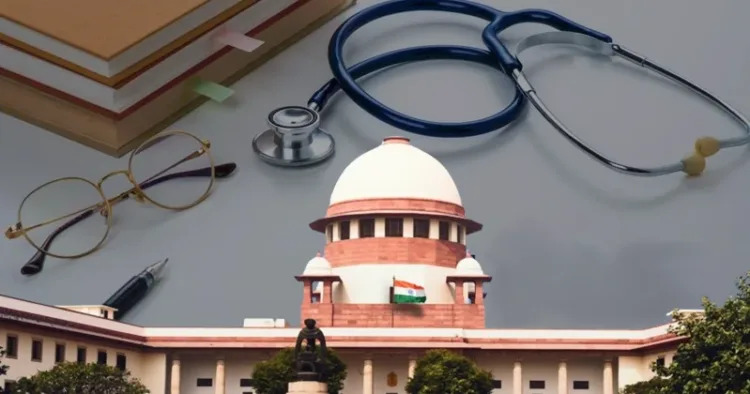The Supreme Court of India, on August 2, delivered a landmark verdict regarding the National Eligibility-cum-Entrance Test-Undergraduate (NEET-UG) 2024, amid widespread controversy over alleged paper leaks and irregularities. While the court found no systemic breach that would justify canceling the exam, it directed the National Testing Agency (NTA) to rectify several deficiencies and avoid administrative “flip-flops” in future examinations.
A three-judge bench, headed by Chief Justice of India DY Chandrachud and including Justices JB Pardiwala and Manoj Misra, stressed that the inconsistencies observed in the NTA’s administration of the exam are detrimental to the interests of students. The bench highlighted the importance of maintaining the integrity of national examinations and called for immediate reforms.
The Supreme Court acknowledged the expert committee’s findings, which indicated that the paper leak was limited to specific locations—Patna and Hazaribagh. This limited breach, the court concluded, did not warrant a nationwide retest, which would have significant repercussions for over 2 million students who appeared for the exam on May 5, 2024.
The court expanded the mandate of the Centre-appointed committee, chaired by former ISRO chief K Radhakrishnan, to include a comprehensive review of the NTA’s functioning. The committee is tasked with recommending reforms to prevent future irregularities and enhance the security and reliability of the examination process.
The Supreme Court proposed the adoption of advanced technological measures, such as:
- Enhanced cyber security protocols
- Improved identity verification processes
- Continuous CCTV monitoring of exam centres
The committee is expected to submit its report by September 30, 2024, outlining detailed recommendations to address the identified deficiencies.
The NEET-UG 2024 exam saw an unprecedented number of perfect scores, with 67 students achieving 720 out of 720 marks. This anomaly, coupled with allegations of paper leaks and impersonation, sparked significant controversy. Initial investigations revealed that the exam paper had been leaked to select candidates a day before the test.
The Supreme Court intervened following multiple petitions demanding the cancellation and retest of the exam. On July 23, the court dismissed these pleas, citing a lack of evidence for a systemic breach. The interim verdict provided relief to the NTA and the NDA Government, which faced intense criticism over the alleged malpractices.
The NEET-UG controversy became a focal point of political debate, with the Opposition demanding the resignation of Education Minister Dharmendra Pradhan. The controversy also led to widespread protests from students and calls for reform from various State Governments.
States like Karnataka, West Bengal, and Tamil Nadu passed resolutions urging the Centre to abolish the NEET exam and allow states to conduct their own entrance tests. The Central Bureau of Investigation (CBI) has since made several arrests related to the paper leak, uncovering the involvement of an interstate gang.
The Radhakrishnan committee’s forthcoming report is expected to provide a roadmap for comprehensive reforms in the NTA’s examination processes. The Supreme Court’s verdict has set a precedent for stringent oversight and accountability in the administration of national exams, emphasising the importance of maintaining public trust and ensuring fairness in educational assessments.



















Comments